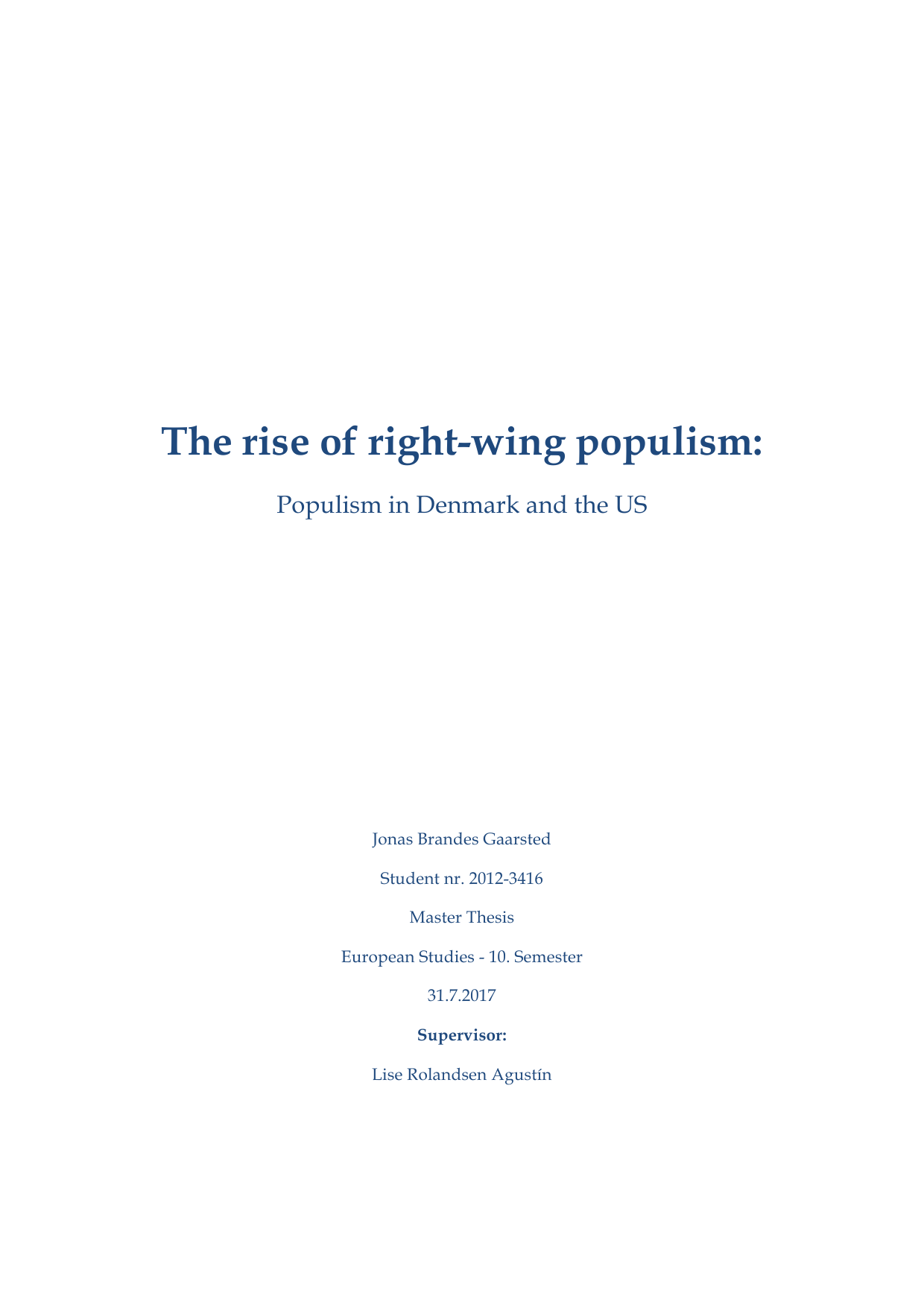
Rise of right-wing populism - Populism in Denmark and the US
Author
Term
4. term
Education
Publication year
2017
Submitted on
2017-07-29
Pages
124
Abstract
In the recent years support for right-wing populism have increased across Western Europe and the US. The purpose of this thesis is to examine the reason behind the rise of populism through a comparative study of the cases Denmark and the US. The theoretical framework developed in the thesis defines populism as a thin-centred ideology that adopts features from other thick-centred ideologies and its surrounding environment. Populism would often emerge in times of crisis. Populists put the people in centre of their narrative and often have hostile attitude towards the elites and the political establishment. (Taggart 2000) (Akkerman, Mudde & Zaslove 2014) To examine the explanations behind the rise of populism a set of hypotheses were developed using the deductive reasoning. The two hypothesis deducted from the theoretical framework were: 1. Rise in right-wing populism is a sign of the people’s dissatisfaction with the elite or representative politics and 2. Rise of populism is normal in times of a crisis. The two hypotheses were tested through a secondary analysis of the two cases using quantitative and qualitative data. The analysis confirmed the claims made in the first hypothesis in both cases. Hence, the result of the secondary analysis showed that one of the explanations behind the rise of right-wing populism could be an increased level of dissatisfaction towards the elite among the people. The analysis of the second hypothesis disconfirmed the claim that populism was normal in times of crisis. The analysis showed that within the context of Denmark the claims of the hypothesis are confirmed. However, in the context of the US the claims of the hypothesis are disconfirmed. However, the analysis showed that the crisis could be an external trigger behind the increased level of dissatisfaction in both countries, which lead to the rise in populism. The crisis could therefore explain the reason behind why the level of dissatisfaction increased in both cases almost simultaneously. The findings in the analysis show that the current rise in right-wing populism can be explained by the increased dissatisfaction towards the elite, or representative politics, and that the financial crisis could be the external trigger that ignited the increased level of dissatisfaction among the people.
Keywords
Documents
